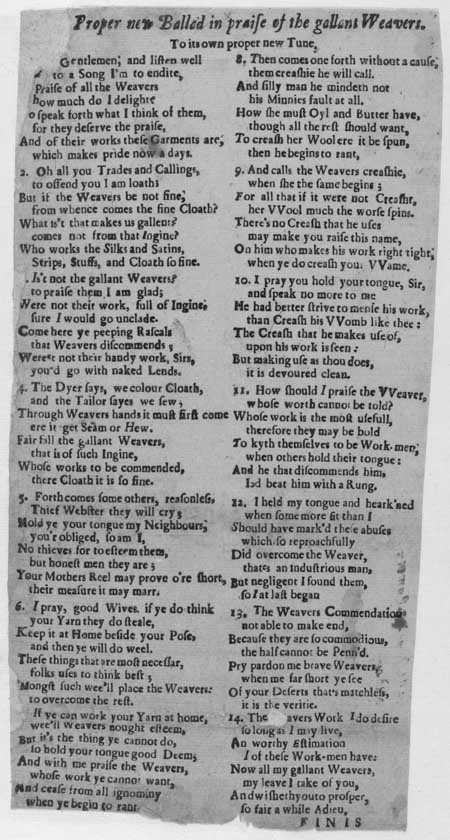Commentary
Verse 1: '[missing] Gentlemen; and listen well / to a Song I'm to endite, / [In] Praise of all the Weavers / how much do I delight? / [T]o speak forth what I think of them, / for they deserve the praise, / And of their works these Garments are, / which makes pride now a days.' The ballad was to be sung 'To its own proper new Tune'. Weavers were a hugely important part of the industrial growth of Scotland, particularly in the eighteenth century when new technology improved the quantity and quality of yarn that could be produced quickly. The textile industry was the hub of the first phase of industrial revolution, swelling Scotland's cities and the town of Paisley in particular. The invention of the power loom reduced the demand for handloom weavers in the nineteenth century, but they remained a politically powerful group of craftsmen. Early ballads were dramatic or humorous narrative songs derived from folk culture that predated printing. Originally perpetuated by word of mouth, many ballads survive because they were recorded on broadsides. Musical notation was rarely printed, as tunes were usually established favourites. The term 'ballad' eventually applied more broadly to any kind of topical or popular verse.
View Transcription | Download PDF Facsimile
|
 |
Probable date of publication:
1701 shelfmark: Ry.III.a.10(023)
 View larger image
View larger image
|


